Barbara Ann Radnofsky, a candidate for Texas Attorney general has prepared a legal complaint against Wall Street. Yes Wall Street.
She is advocating that State Attorney's General should commence legal actions styled along the lines of the "tobacco litigation" only this time against Wall Street et al. The complaint is based on the legal theory of Quasi Sovereign Interest which recognizes the States right to sue to protect its physical and economic well being and that of its citizens.
The text of the complaint is set out below. It may or may not be efficacious in the courts. However, it serves as a compact civil indictment of the criminal bankster behavior that has been diligently chronicled on the pages of this blog. To date, our law enforcement and regulatory system has fallen woefully short in bringing the "hole in your 401k Wall Street gang" to justice. Regulators and prosecutors have shown little in the way of "Spitzerian" imagination. The kind of imagination that led to the draft of this complaint.
If you are tired of hearing about how the rating agencies can't be sued, how AIG and Joey Cassano will not be prosecuted, how Goldman did everything right, how Dick Fuld did not know what Repo 105 is, how Geithner had no idea what the terms of the AIG bailout were, how Hank Paulsen never discussed Goldman's AIG clusterfuck with Lloyd Blankfein, how the financial tsunami was actually a black swan, how Bernie Madoff is the only one who belongs in jail, how Citigroup danced the same dance as everyone else, how TBTF is not the problem, how Goldman won't have to comply with the watered down Volcker Rule until 2022, how derivatives are actually good for the economy etc...you will surely enjoy reading this:
1. Plaintiff State of Texas ("the State") sues Goldman Sachs Group, Morgan Stanley, UBS, Merrill Lynch/BOA, Citigroup, Credit Agricole, Credit Suisse, Deutsche Bank ("the Banks"), Moody’s, Standard and Poor’s, Fitch (“the Ratings Agencies”), AIG Insurance Company (AIG) and other John Doe defendants for causing financial crisis and physical harms; recession; unemployment; home and wealth loss; forced cutbacks in a wide variety of critical areas, including medical care, social services, and environmental protection. Damages to the State include but are not limited to reduction in the value of state investments and the increased costs to governmental units, including increased insurance costs to Texas governmental units seeking to issue bonds whose reputation has been unfairly impaired. Defendants caused budget shortfall of at least $18 billion to the State of Texas. The environment, health and wellbeing of the State and its citizenry are directly harmed. The first manifestations to children and other vulnerable citizens include hunger, disease and medical complication.
2. The U.S. Supreme Court recognizes the State's right to sue to protect its physical and economic well being and that of its citizens and the State's possession of Quasi Sovereign Interests in physical wellbeing and economic prosperity.
3. AIG negligently ran and ruined its own and other businesses and the economy by failing to act as a reasonable and prudent insurance company, costing over $180 billion for bailout. AIG foolishly insured many hundreds of billions of dollars of loan agreements: bets as to whether borrowers would default. In insuring these credit default swaps, AIG knew or should have known that massive defaults would occur and AIG would be left holding the bag. AIG’s misconduct included intentional and fraudulent acts and omissions. AIG engaged in fraudulent misrepresentations aware of the significant risks, but claiming credit default swaps were selling insurance for “a catastrophe that would never happen.”
4. The Banks negligently ran and ruined their own and other affected businesses and the economy. Wall Street Banks created financial products such as Collateralized Debt Obligations, derived from bonds, which they marketed and sold as legitimate investments, using credit default swapping to allow investors to also bet on failure/default. The Wall Street Banks, negligently and intentionally, allowed the ratings received on their own products to falsely portray the investments as better than in truth the investments were. Had investors or ratings companies been properly informed, they'd have known the products were designed to fail, intentionally favoring bettors-on-default. The Banks’ misconduct included intentional and fraudulent acts and omissions.
5. The rating system fostered by all defendants added to the deception including failure to disclose and eliminate banks’ control over ratings and payments. The ratings agencies also acted negligently, fraudulently and with gross negligence in their conduct. Each defendant’s private worries were not expressed publicly. In the September 2008 Financial Crisis, Ratings Companies downgraded hundreds of billions worth of Collateralized Debt Obligations, massive dollar amounts of which remained AAA rated up to that point. Significant amounts were not only degraded, but had filed default. Defendants acted, individually and together, in concert, conspiracy and enterprises. One now discovered email reflected the attitude: “Let’s all hope we are all wealthy and retired by the time this house of cards fails.”
6. Defendants’ gross negligence, and intentional torts, including omissions and acts and their toxic product offerings and sales were fraudulent as well as negligent.
7. The Defendants continue in their negligent, grossly negligent and intentional practices described, allowing their greed and egos to dominate their continued, poor decision making. The State's protection of its Quasi Sovereign Interest serves the public's interest in making Wall Street accountable for its actions, past, present and future, and seeks all injunctive relief to which it is entitled, as well as damages, to compensate for harm caused and prevent further damage. Wall Street continues its wrongful activities involving financial products. Texas sues to remedy and prevent further physical and economic injury to its citizenry, the state generally, and its economy and budget. The State is entitled to seek relief. The matters complained of affect her citizens at large. The environment and economy of Texas and the physical, economic and general welfare of its citizens have seriously suffered as a result of the toxic products and activities described. Texas sues for its damages caused by Wall Street's fee-churning, insider-favoring, betting-on-losers default misadventures.
8. The Texas Attorney General, on behalf of the people and State of Texas brings this suit under Texas law and the well recognized doctrine of Quasi Sovereign Interest for the following damages:
A. Money damages to the State of Texas for at least $18 Billion;
B. Requirement that Defendants disgorge their economic benefits, including claw back of any and all bonuses paid since the beginning of the harmful practices outlined;
C. The State's attorneys fees, costs, and expenses;
D. Punitive damages for the outrageous ruinous conduct described. Without the massive damages such as those suffered by Plaintiff, the wrongdoers would never have been caught. No self regulation, governmental regulation, or outside force exposed the wrongdoing. The massive harm (including self destruction) provided no halt to bad business practices. Without punitive damages, the harmful practices will continue into the future, exposing the State and its citizens to further damage.
E. Such other and further relief as to which the State may show itself justly entitled.
Hey Wall Street....
Sue Wall Street.com
Subscribe to:
Post Comments (Atom)










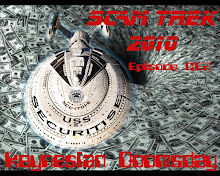



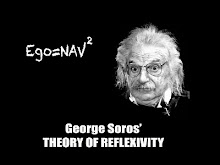

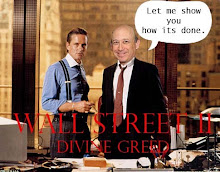



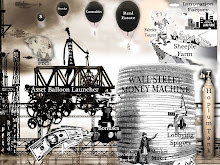
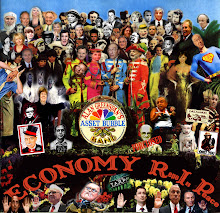



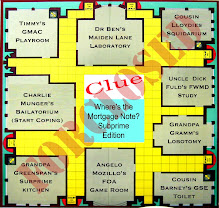





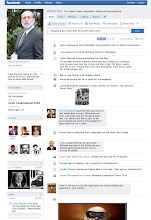
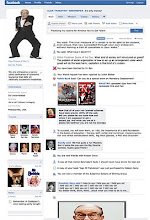
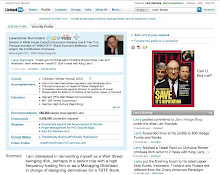




.jpg)



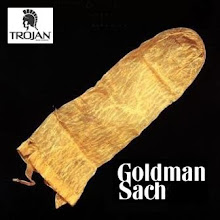








Hope this actually gets some traction. Then I'd be willing to cut TX some slack. Why is it the women who have the balls in America? And I don't mean tar balls.
ReplyDelete